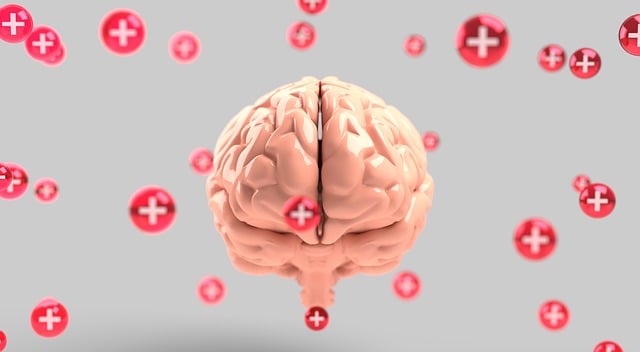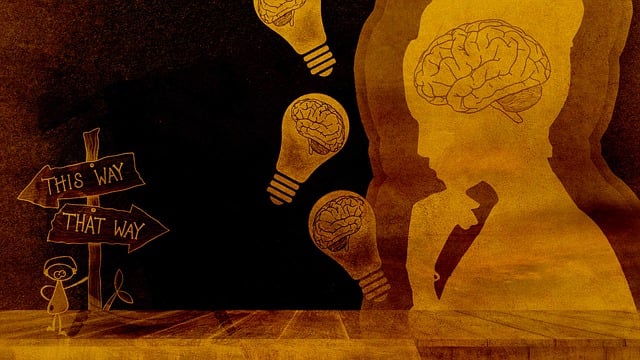Christian counseling offers a unique, holistic approach to mental health support by integrating social skills training with traditional therapy. This method teaches self-awareness, communication strategies, and conflict resolution techniques, empowering individuals to navigate social interactions effectively. By combining spiritual support with evidence-based practices like CBT, therapists help clients build healthier relationships, boost self-esteem, and manage mental health challenges both socially and spiritually. Tailored to individual beliefs and backgrounds through culturally competent training, this approach leads to improved mental health outcomes, enhanced life satisfaction, and stronger support systems.
Social skills training is an essential component of holistic mental health care, particularly within the context of Christian counseling. This article explores the intricate link between social skills and mental well-being, offering a comprehensive guide for Christians seeking effective therapy. We delve into evidence-based strategies, the unique role of faith-based counseling, and practical ways to navigate common challenges. By integrating these insights, individuals can enhance their social interactions, foster meaningful connections, and experience profound healing. Discover how this approach empowers Christians on their journey towards mental health recovery.
- Understanding the Link Between Social Skills and Mental Health
- The Role of Christian Counseling in Social Skills Training
- Effective Strategies for Developing Social Interaction Abilities
- Overcoming Common Challenges in Social Skills Therapy
- Integrating Social Skills Training into a Holistic Healing Plan
Understanding the Link Between Social Skills and Mental Health

In the realm of mental health support, especially within Christian counseling settings, recognizing the profound impact of social skills cannot be overstated. The connection between an individual’s ability to navigate social interactions and their overall mental well-being is a key aspect that therapists often focus on. Many mental health conditions can isolate individuals, leading to feelings of loneliness and exacerbating symptoms. Thus, integrating therapy for Christian counseling with social skills training offers a holistic approach to healing.
Self-awareness exercises, communication strategies, and conflict resolution techniques are instrumental in this process. By teaching individuals how to interpret social cues, express themselves effectively, and manage conflicts, therapists enable them to build healthier relationships and improve their support networks. This, in turn, can foster a sense of belonging, boost self-esteem, and provide valuable coping mechanisms for managing mental health challenges. Such personalized training ensures that clients gain practical tools to thrive socially while navigating their spiritual journeys.
The Role of Christian Counseling in Social Skills Training

Christian counseling plays a significant role in social skills training for individuals with mental health conditions, offering a unique blend of spiritual and therapeutic support. This approach leverages faith-based principles to foster emotional well-being and enhance interpersonal interactions. Therapists who specialize in Christian counseling integrate biblical teachings and religious values into traditional therapy models, creating a safe space for clients to explore their mental health struggles while aligning with their faith.
By combining evidence-based practices with the power of prayer, spiritual reflection, and community support, Christian counseling programs promote cultural sensitivity in mental healthcare practice. They address not only the individual’s emotional and psychological needs but also their spiritual growth. This holistic approach can be particularly beneficial for those seeking to integrate their faith into their therapy journey, aiming for both personal transformation and improved social skills within a supportive network that respects their cultural beliefs and practices.
Effective Strategies for Developing Social Interaction Abilities

Social skills training is an integral component of therapy for Christian counseling, focusing on enhancing interaction abilities for those managing mental health conditions. This involves a multi-faceted approach tailored to individual needs. One effective strategy is role-playing scenarios that replicate real-life situations, enabling clients to practice and receive immediate feedback. Through this method, individuals can develop coping mechanisms and improve their ability to navigate social interactions with confidence.
Additionally, group therapy sessions foster cultural sensitivity in mental healthcare practice by creating a supportive environment where participants learn from diverse experiences. Encouraging open dialogue and sharing personal stories allows for the development of empathy and understanding. Self-care practices, such as Mental Wellness Journaling Exercises, are also valuable tools that promote reflection and self-awareness, helping individuals process their emotions and interactions in a healthy manner.
Overcoming Common Challenges in Social Skills Therapy

Social skills training for mental health conditions presents unique challenges that require tailored strategies. Many individuals struggling with anxiety, depression, or post-traumatic stress disorder (PTSD) often experience social anxiety and avoidance, making it difficult to engage in meaningful interactions. Overcoming these challenges requires a patient and comprehensive approach within therapy sessions.
In the context of Christian counseling, therapists must create a safe and supportive environment where individuals feel comfortable practicing new social skills. The design of mental health education programs should incorporate evidence-based techniques like cognitive-behavioral therapy (CBT) to challenge negative thought patterns around social situations. Additionally, teaching conflict resolution skills and providing trauma support services can empower clients to navigate interpersonal challenges effectively while fostering healthier relationships.
Integrating Social Skills Training into a Holistic Healing Plan

Integrating Social Skills Training into a holistic healing plan is a powerful approach to enhancing mental well-being, especially within the context of Christian counseling. Many mental health conditions can benefit from social skills development, as it promotes better communication, empathy, and connection with others—key aspects of a supportive and nurturing environment. By incorporating these training sessions into therapy, healthcare providers can empower individuals to navigate their communities with confidence and foster meaningful relationships.
This strategy is particularly relevant in Christian counseling settings where building strong support networks and practicing self-care routines (a crucial component for stress reduction methods) are emphasized. Healthcare provider cultural competency training ensures that counselors are equipped to address the unique needs of their clients, fostering an environment where social skills training can be tailored to individual beliefs and backgrounds. As a result, clients may experience improved mental health outcomes, enhanced life satisfaction, and stronger support systems.
Social skills training, especially within the context of Christian counseling, plays a pivotal role in enhancing mental well-being. By understanding the interconnectedness of social abilities and mental health, we can create holistic healing plans that address both aspects effectively. Through evidence-based strategies and tailored approaches, individuals with various mental health conditions can develop and improve their social interaction skills. Overcoming challenges along the way, as discussed in this article, allows for more successful outcomes in therapy. By integrating social skills training into comprehensive care, Christian counselors can empower clients to navigate social situations with greater confidence, fostering better relationships and improved overall mental health.














